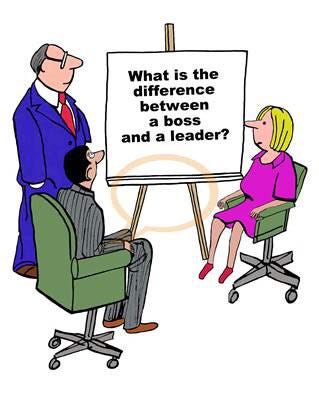7 Habits of Highly INEFFECTIVE Leaders
The counter perspective: what not to do in a leadership role
The counter perspective: what not to do in a leadership role
In this piece, we are going to talk about the “7 Habits of Highly Ineffective Leaders”. If you may be recall, in 1989 there was published a book titled “7 Habits of Highly Effective People” by Stephen Covey, which become an international bestseller.
Stephen Covey Matrix Precis
In summary, Covey talked about a total of 7 qualities (3+3+1, actually). The first quality was to be pro-active; to take, rather seize, initiative; the second, to begin and end with the ultimate objective in the mind. The third was put “first things first” which essentially means prioritizing. The next three qualities were clubbed under the sub-head of “interdependence” which meant relying on “win-win” situations, empathy (to understand and to be understood) and looking for synergies. The last quality was called “sharpening the saw”, which connoted continual improvement and keeping oneself up-to-date with the latest developments in one’s field of interest. This book influenced and shaped the management thinking for several decades and managerial leaders aspired to master the desired traits and habits. However, there has not been a countervailing treatise on what are the habits that great leaders need to eschew or avoid. Now, these qualities are not the exact opposite of what Stephen Covey espoused. Were it so, it would be easy to enumerate the same list in negative terms. In other words, the hypothesis would be that poor leaders habitually do not do what Covey prescribed and hence they fail in their respective leadership roles.
New Paradigm
However, we have attempted to view the subject from a different perspective and come with a new paradigm, highlighting certain habits that good leaders must avoid. To be fair, people with these habits may still be good people with great qualities of the head and heart. They may be an excellent as a member of the team or great in the role of a second-in-command but they nevertheless do not succeed when put in a leadership position.
So, what are those seven undesirable habits which make reasonably good people substantially ineffective as leaders? Not only do these people become miserable themselves but they also tend to demoralize the other members of their team. Of course, the results for the organization as the whole are well nigh disastrous.
They don’t Delegate
The first cardinal sin, if I may say so, is that these people do not delegate — they try to do everything themselves. DIY — “do it yourself” — is something which is innate to them. If you go by the classical theory, only something which is both urgent and important is what the leader ought to attend to himself personally, but in all other combinations, effective delegation accompanied by the authority to do so, is an imperative. Such ineffective leaders forget the power of delegation because it is ultimately the team which has to get the task done .
No Confidence in their Team
The second attribute which these people have is that while they a great notion of personal integrity about themselves, they are exceedingly suspicious of their subordinates. This is not only in terms of integrity and honesty issues in narrow financial terms but also in terms of being loyal and faithful to the organization; The juniors are seen as being truants, who are trying to shirk work. In doing so, they tend to lower the moral of the organization as a whole.
Re-visiting Decisions
Coming to the third point, these leaders can be sometimes be excellent in reaching and taking decisions — the style of decision-making can be different. Some people are consultative, some people will consult their group together, others might consult the key members separately and then take an informed decision. Some leaders are in the habit of taking decisions pretty much on their own. Now, there is nothing good or bad about all these styles but what really matters is that before arriving at a decision, we ought to consider all the pros and cons, including the potential consequences, both is positive and negative. A few leaders, however, have the tendency of revisiting of those decisions even if may been reached after due deliberation and a great deal of consultation with all the stakeholders. Don’t get may be wrong — if some entirely new event has happened, which was not previously foreseen, or some data has become available which was earlier not there, it is not at all improper to revisit decision. However, in absence of those, if you revisit a decision, reopen decisions or even reinterpret a decision, then there is no element of finality and the organization is bound to be engulfed in an atmosphere of uncertainty.
Lack of Confidence
Coming to the fourth attribute, these people may have great skills and qualities, but they may still lack confidence in their of own abilities. Now, they may be having a great team working for them but if they are risk-averse, or if they have lack of confidence in themselves, this type of diffident attitude will trickle down the organization. Therefore, it is not just about the level of your qualities, skills and expertise but also about being sure and confident of one’s abilities that will inspire confidence down the line. Thus, you cannot have an effective leader who is very good in himself but kind of tentative and hesitant when trying to assess his own qualities.
Lack of Focus or too much of it
We now come to the fifth point. It is about focus, rather the lack of it. So there may be an organizational priority but the leader is not focused on it. He may tend to be scattered/ hare-brained, thinking of thousands other things which could be happening or ought to be happening. When you don’t have laser-sharp focus, you miss on your priorities. So much about lack of focus. On the other hand, you may have far too much of a focus. You are so closely focussed on one particular aspect of the organization, trying to be a microscope and telescope all in one, that you lose sight of the fact that there are other things of happening in the organization. Some of these may be unintended or could be happening in the environment and the atmosphere in which your organization works but your over-focus on what you may regard as a key area, makes you totally ignore them. This can be suicidal for your organization.
Victim Syndrome
Then there are leaders who have this victim syndrome. What it really means is that they think that the entire universe is constantly conspiring against them. “Oh Gosh!, my Board of Directors has not supported me” or “My VCs are against me”; “My 2-ic is plotting to stab me in the back”. They can even blame a market which falls or blame a political situation on the border and you can blame even God. So, that the victim syndrome; such a person can never really be a good leader.
Brooding over failure
The last quality which a good leader should not be having or which is often to be found in ineffective leaders is brooding too much on failure. If you are going to try something new, failures are going to happen. Your forays are calculated risks that you take because unless you attempt something, you are not going to succeed. So, failure is a part and parcel of your attempts to succeed. However, some of the leaders tend to brood too much over the failure, trying to over-analyze it; going beyond just learning lessons and mopping over it; being pessimistic and having gloom and doom mentality which trickles down organization. Now, that is not what a good leader ought to be doing and this is quality which is often to be found in leaders who are ineffective. At the same time, it is also important to be able to celebrate your small successes. The great success may or may not come; it come once in a lifetime or twice. But to enthuse your team, small successes, modest deadlines met, small milestones achieved need to be celebrated, even if on a modest scale. This galvanises the entire organisation.
Take-away
So friends, we have touched the qualities which ineffective leaders have. There may be some complementary overlap with those that Stephen Covey talked about in the late 1980s but I think we have put a different spin on those and it is time to us introspect ourselves and see whether you are suffering of all or from any of these and, if so, correct yourself.
___________________________________________________________________
K.B.S. Sidhu. The author is an IAS officer of 1984 batch of Punjab cadre. The views expressed are his own.
He can be reached on kbs.sidhu@gmail.com or @kbssidhu1961 or https://www.facebook.com/kbs.sidhu
___________________________________________________________________





